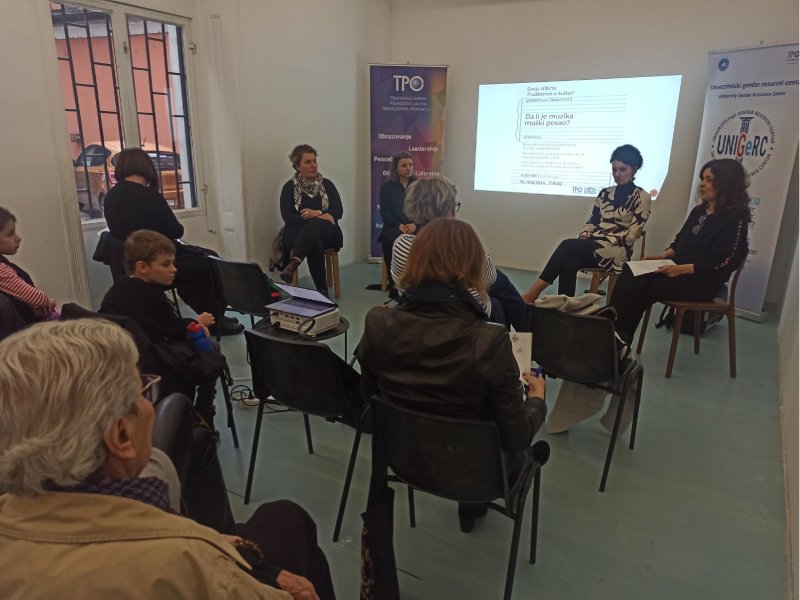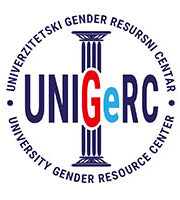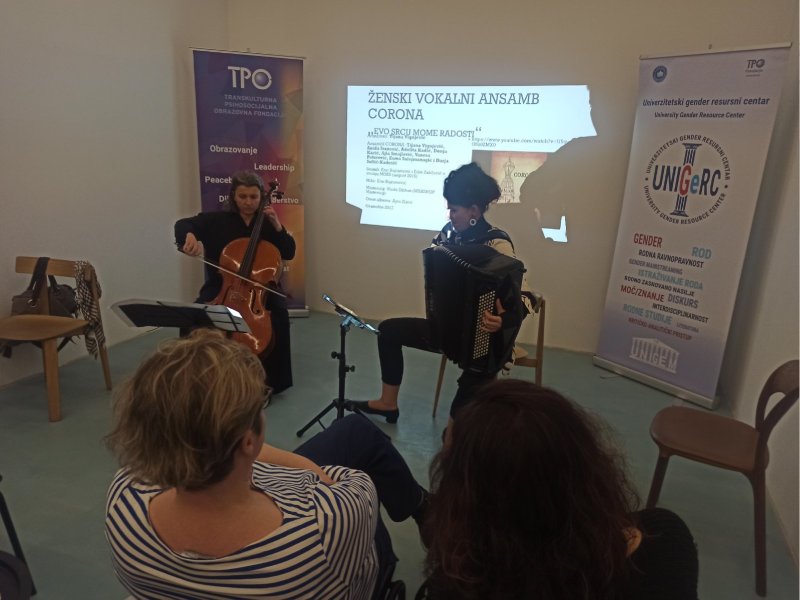The fourth installment of the panel discussion series titled “Female workers in Culture” explored the question: “Is music a male dominated field?” Held at Galerija Manifesto on May 14, 2024, the event aimed to investigate the extent to which patriarchal norms shape the contemporary music scene in Bosnia and Herzegovina.
The panelists, comprising three exceptional women from the music field, shared their personal experiences and insights on overcoming gender-based obstacles to fully dedicate themselves to musical creativity. Belma Alić and Belma Šarančić, both professors at the Music Academy of the University of Sarajevo (UNSA), along with Tijana Vignjević, a conductor and orchestra professor at the Sarajevo High School of Music, participated in the thought-provoking discussion moderated by Ajla Demiragić.
Tijana Vignjević illuminated the historical context of classical music, noting its predominantly male character throughout history. She highlighted the gradual emergence of women as soloists, orchestra members, and composers in the latter half of the twentieth century. However, she emphasized the existence of gender-based prejudices, such as the historical practice of assigning female roles to male performers in opera due to social restrictions on women’s stage appearances. She further illustrated the global landscape, citing examples from renowned orchestras like the Vienna Philharmonic and the Berlin Philharmonic, which historically excluded women from their ranks until recent decades. Despite progress, gender inequalities persist, with women comprising a minority in orchestral positions worldwide.
Belma Šarančić explored the contemporary challenges faced by women artists in the twenty-first century. She presented the modern woman at a crossroads, torn between the priority of personal fulfillment and adapting to societal expectations of selflessness within familial and communal roles. She raised the question of whether a woman artist can truly pursue her artistic calling amidst the demands of everyday life, pondering the feasibility of balancing artistic passion with personal responsibilities.
Belma Alić emphasized that music, fundamentally, is not a domain exclusive to men; rather, it is a universal language similar to any other form of art. She highlighted the significant contributions of numerous successful female artists throughout history, underscoring their key roles in advancing their fields. However, she acknowledged the pervasive challenges and forms of discrimination faced by women artists in the field of music throughout history. Alić noted that while progress has been made, gender inequalities and prejudices persist in certain areas and many musical genres. In the local context, Alić highlighted the continued professional obstacles faced by women artists due to traditional gender-based roles and cultural norms.

The discussion highlighted the nuanced dynamics shaping women’s participation in music, both historically and in the contemporary era. While steps have been taken towards gender equality, systemic barriers and societal expectations continue to hinder women’s full participation and recognition in the musical landscape. As the dialogue concluded, it became evident that supporting greater inclusivity and support for women in music is a real imperative for equality and cultural enrichment.



